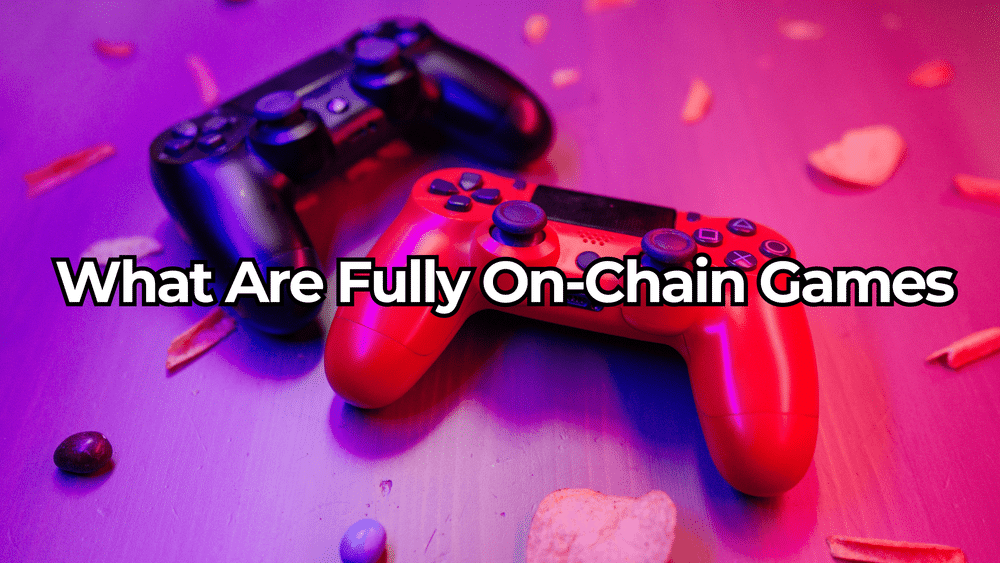In the ever-evolving landscape of the gaming sector, blockchain technology has positioned itself as a revolutionary catalyst, particularly within the realm of Fully On-Chain games (FOCGs). These platforms diverge significantly from traditional web3 games, which predominantly employ blockchain to manage digital asset propriety, by harnessing it as a comprehensive decentralized computing framework. This pivot transforms the functionality of blockchain into a mechanism that not only governs asset ownership but also underpins game logic and state, situating it on par with conventional gaming servers. As technology forges ahead, this avant-garde method is gradually surmounting obstacles inherent to blockchain, such as elevated costs and protracted processing durations.
Understanding Fully On-Chain games
FOCGs exploit the decentralized computing capabilities of blockchain, differentiating themselves from the majority of web3 games that are premised on asset ownership tracking. These games are inherently decentralized and autonomous, potentially heralding a new era in game development and the proliferation of user-generated content (UGC). Standing as a “hard form” application of web3 technology, they face early-stage challenges but hold steadfast to the promise of exponential technological advancements. The evolution of blockchain infrastructure and development frameworks is increasingly rendering FOCGs a feasible proposition for the future tech landscape.
By operating entirely on the blockchain, FOCGs envision a future where game logic, mechanics, and states are an immutable part of the blockchain ledger, thereby creating decentralized, autonomous, and permissionless gaming experiences. This immutability ensures that FOCGs exist indefinitely, governed solely by the logic encrypted within their code, fostering “Autonomous Worlds.” The potential to catalyze innovation in business models, launch new game genres, and enhance the monetization of UGC positions FOCGs at the cusp of drastically expanding the horizons of creativity and gameplay diversity.
The Dichotomy of Soft and Hard Technology Applications
Technological innovation manifests in two primary modalities: soft and hard. Soft applications offer progressive improvements to existing products, while hard applications embrace the full swath of technological potential, often at the expense of initial practicality. Reflecting upon the inception of devices like the iPhone, which despite initial challenges redefined market paradigms, FOCGs can be perceived as a hard form of blockchain application. Unlike the contemporary web3 gaming focus on asset ownership tracking, FOCGs fully leverage blockchain to craft decentralized, autonomous gaming environments. Even as they navigate the trials of high costs and latencies, the historic trajectory suggests a diminishing of these obstructions over time, heralding a new dawn for FOCGs.
Moving Beyond Mere Ownership
Today’s web3 gaming platforms often highlight “True Digital Ownership” of in-game assets, permitting open trade and monetization of the gaming experience. While enriching certain game genres, this model largely leaves the core gameplay intact posing it as a soft application of the technology. FOCGs, conversely, employ a hard form application, embedding every aspect of game logic on-chain, thereby democratizing game environments. This paradigm shift towards decentralized gaming is poised to unlock unprecedented types of game innovations.
Overcoming the Challenges of FOCGs
Practically, FOCGs confront a spectrum of challenges, primarily stemming from the inherent limitations of current blockchain technology, such as transaction fees, latency, and the necessity for swift response times. To circumvent these, many FOCGs are either designed around less time-sensitive gameplay mechanics or are deployed on testnets. Nevertheless, ongoing advancements in blockchain technology like sharding and rollups are enhancing efficiency, while game-specific developmental environments offer tailored solutions for on-chain games. As infrastructure and tools like MUD and Dojo mature, lowering developmental barriers, FOCGs are set on a trajectory towards broader innovation and accessibility.
The Future Horizon of Fully On-Chain games
The progressive arc of FOCGs intimates a future where technological leaps overcome the prevailing limitations, thereby broadening FOCGs’ appeal and fostering seamless decentralized gaming experiences. While currently a niche, the transformative potential of FOCGs to redefine gaming paradigms is unmistakable. By carving new pathways for creation, play, and game monetization, FOCGs stand to signify a significant pivot in gaming within the web3 era, driving towards a future where decentralized gaming experiences are at the forefront of industry evolution.
